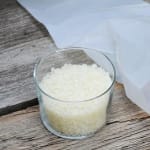
Agrana announces the launch of its bioplastic Agenacomp A 50:50 blend of thermoplastic starch and a biologically degradable polyester has given rise to an bioplastic compound which is fully compostable at home. "This is the first product for the bioplastic market containing such a high proportion of starch (the market standard is only around 25%) and one which makes the product compostable at home. The TÜV-certified compost tests revealed 100% degradation without microplastic residues," explains Agrana CEO Johann Marihart. Diverse application areas exist for Agrana’s new bioplastic compound, ranging from thin bags for fruit and vegetables to thicker carrier bags and even as packaging film.
Biodegradable plastics are not always compostable
The terms 'biodegradable' and ‘compostable’ are used both in connection with plastics made from renewable resources (bioplastics) as well as certain materials based on mineral oil. But not all biodegradable bioplastics are compostable. Critics are particularly sensitive when it comes to the imprecise term 'biodegradable' because the international guidelines relevant for this classification (OECD 301 and OECD 302) do not specify the period of time in which the product must degrade. The result is often unsettled consumers who are not aware whether some bioplastic products are suitable as organic waste.
In terms of compostability, a differentiation needs to be made between 'home-compostable' and industrial composting processes. "Home compostability is without doubt particularly important. Taking care of our own composting is a means of reducing waste since this biowaste neither lands in the household waste nor needs to be separately collected via the organic waste bin and industrially disposed of. Around a third of all household waste is biowaste," Marihart highlights.
Marihart: "We need to exploit every opportunity to reduce plastic waste"
The public needs to become far more aware of compostability at home as an important quality criterion in the case of bioplastics. "Other countries such as Italy and France are leading the way here and even implementing legal regulations prescribing that plastic bags must be suitable for home composting. This requirement should apply throughout the EU," according to Marihart. "The environment in Austria is polluted by around 5,000 metric tons of plastic waste every year. Given the enormous problem with plastic waste, we need to exploit every practical option to counteract this. We also have to remember that bioplastics help reduce greenhouse gas emissions given that they are made using renewable resources," says Marihart, with a view to the current Katowice Climate Change Conference, and welcoming the initiative of the Austrian federal government to ban conventional plastic bags from 2020.
Source: Agrana


